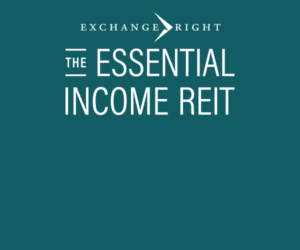2021 tax time has passed – let’s get ready for next year’s tax season!
May 2, 2022 | Erik Hayden | Urban Catalyst

The Good Friday holiday extended this year’s tax filing deadline from April 15 to April 18, but now that day, too, has come and gone. While the first reaction to this may be to breathe a sigh of relief, the next should be to start thinking about next year.
When you’re talking taxes planning is the key, and that’s especially true for those who expect to realize a capital gain from the sale of a business, stock, or real estate. The reality is that there aren’t but so many ways to help manage taxes on those gains. For those who qualify, one of the options is an investment in an Opportunity Zone (OZ) fund.
An investment in an OZ fund like ours can potentially allow you to defer capital gains taxes, but you need to get started with your planning soon: you only have 180 days – six months – after realizing the gain to make the investment.
There are a few other things to know. First, OZ funds are not just about the tax break. They’re about adding value to cities and neighborhoods while at the same time generating a return for investors on the projects themselves (in addition to any potential tax benefits). They’re about creating jobs and opportunities for those in economically underserved areas. And, depending on how you’re currently invested, they’re about diversifying into a new asset class with the potential to generate income and to provide some protection against inflation.
Sometimes it seems like tax season never ends, and in some ways it doesn’t. It always helps to think ahead. To find out more about the role Opportunity Zone fund can play in your tax planning, contact us today.
About Urban Catalyst
Urban Catalyst Opportunity Fund LLC (“Urban Catalyst”) is a real estate development Fund focused on properties located in the downtown San Jose Opportunity Zone, in the heart of Silicon Valley.
Important Disclosures
The contents of this communication: (i) do not constitute an offer of securities or a solicitation of an offer to buy securities, (ii) offers can be made only by the confidential Private Placement Memorandum (the “PPM”) which is available upon request, (iii) do not and cannot replace the PPM and is qualified in its entirety by the PPM, and (iv) may not be relied upon in making an investment decision related to any investment offering by an issuer, or any affiliate, or partner thereof (“Issuer”).
All potential investors must read the PPM and no person may invest without acknowledging receipt and complete review of the PPM.
With respect to any performance levels outlined herein, these do not constitute a promise of performance, nor is there any assurance that the investment objectives of any program will be attained. All investments carry the risk of loss of some or all of the principal invested. Assumptions are more fully outlined in the Offering Documents/ PPM for the respective offering. Consult the PPM for investment conditions, risk factors, minimum requirements, fees and expenses and other pertinent information with respect to any investment.
These investment opportunities have not been registered under the Securities Act of 1933 and are being offered pursuant to an exemption therefrom and from applicable state securities laws. All offerings are intended only for accredited investors unless otherwise specified.
Past performance are no guarantee of future results. All information is subject to change. You should always consult a tax professional prior to investing. Investment offerings and investment decisions may only be made on the basis of a confidential private placement memorandum issued by Issuer, or one of its partner/issuers. Issuer does not warrant the accuracy or completeness of the information contained herein. Thank you for your cooperation.
Real Estate Risk Disclosure:
– There is no guarantee that any strategy will be successful or achieve investment objectives including, among other things, profits, distributions, tax benefits, exit strategy, etc.;
– Potential for property value loss – All real estate investments have the potential to lose value during the life of the investments;
– Change of tax status – The income stream and depreciation schedule for any investment property may affect the property owner’s income bracket and/or tax status. An unfavorable tax ruling may cancel deferral of capital gains and result in immediate tax liabilities;
– Potential for foreclosure – All financed real estate investments have potential for foreclosure;
– Illiquidity – These assets are commonly offered through private placement offerings and are illiquid securities. There is no secondary market for these investments.
– Reduction or Elimination of Monthly Cash Flow Distributions – Like any investment in real estate, if a property unexpectedly loses tenants or sustains substantial damage, there is potential for suspension of cash flow distributions;
– Impact of fees/expenses – Costs associated with the transaction may impact investors’ returns and may outweigh the tax benefits
– Stated tax benefits – Any stated tax benefits are not guaranteed and are subject to changes in the tax code. Speak to your tax professional prior to investing.
Opportunity Zone Disclosures
– Investing in opportunity zones is speculative. Opportunity zones are newly formed entities with no operating history. There is no assurance of investment return, property appreciation, or profits. The ability to resell the fund’s underlying investment properties or businesses is not guaranteed. Investing in opportunity zone funds may involve a higher level of risk than investing in other established real estate offerings.
– Long-term investment. Opportunity zone funds have illiquid underlying investments that may not be easy to sell and the return of capital and realization of gains, if any, from an investment will generally occur only upon the partial or complete disposition or refinancing of such investments.
– Limited secondary market for redemption. Although secondary markets may provide a liquidity option in limited circumstances, the amount you will receive typically is discounted to current valuations.
– Difficult valuation assessment. The portfolio holdings in opportunity zone funds may be difficult to value because financial markets or exchanges do not usually quote or trade the holdings. As such, market prices for most of a fund’s holdings will not be readily available.
– Capital call default consequences. Meeting capital calls to provide managers with the pledged capital is a contractual obligation of each investor. Failure to meet this requirement in a timely manner could elicit significant adverse consequences, including, without limitation, the forfeiture of your interest in the fund.
– Opportunity zone funds may use leverage in connection with certain investments or participate in investments with highly leveraged capital structures. Leverage involves a high degree of financial risk and may increase the exposure of such investments to factors such as rising interest rates, downturns in the economy or deterioration in the condition of the assets underlying such investments.
– Unregistered investment. As with other unregistered investments, the regulatory protections of the Investment Company Act of 1940 are not available with unregistered securities.
– It is possible, due to tax, regulatory, or investment decisions, that a fund, or its investors, are unable realize any tax benefits. You should evaluate the merits of the underlying investment and not solely invest in an opportunity zone fund for any potential tax advantage.











